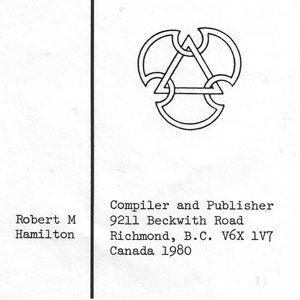
WATER, HARD: With Activated Charcoal to Remove Calcium
Culture Orchid Doctorby Robert M. [Bert] Hamilton (Compiler)
Originally published in The Orchid Doctor in 1980 and 1988
Posted by Sys Admin about 9 years ago.Article Blog Article Index
It will not work; only certain types of organic compounds are filtered out; units for doing the job properly are not cheap; best bet is to catch rainwater. A74-433
Share on Social Media:
More The Orchid Doctor Articles under the Heading Water, Hard
| Water, Hard | Comments |
|---|---|
| WATER, HARD: Causes Calcium Deposits on Cattleya Leaves The acidification of water from the hose gradually dissolves the deposits; see method described, A69-126; A71-609 | 0 |
| WATER, HARD: Characteristics The critical factor is the soluble salt content; over 150 ppm. of calcium carbonate (CaCo/3) is hard, soap does not produce good lather; waters with less than 125 ppm. are excellent; up to 500 ppm. are all right; 500 to 800 are usable with caution. F80-8 | 0 |
| WATER, HARD: De-ionized Water for Plants For a few small plants one can buy the kind of water sold for steam irons in areas where the local water has a high sodium content. OD79-53 | 0 |
| WATER, HARD: Deposits on Tree-fern Rafts To dissolve these use a little nitric acid at pH of 4.0 to 4.5; add a few drops of dilute nitric acid to a plastic bucket of water and soak the rafts for 1/2 hour. A75-680 | 0 |
| WATER, HARD: Devices Available for Removing the Cause There is no simple device for removing calcium and magnesium from tap water; water-softeners create water unsuitable for orchids; demineralization units are expensive; paphiopedilums grow in limestone soils and are not harmed by "hard" water; possible to acidify hard water with citric or nitric acids. A72-204 | 0 |
| WATER, HARD: High in Calcium and Magnesium Salts Its nature and characteristics and suitability for growing; has high electrical conductance; comments on water-softeners; refer to A67-466+; AH39 | 0 |
| WATER, HARD: Near Maximum "hardness Index" If the water coats pots and plants with lime residue, perhaps rain water should be collected for periodical use; demineralizer units are expensive but laboratory models are more moderate; address given. A73-709 | 0 |
| WATER, HARD: Softened with Soda Ash Do not use this on plants. A67-466; A78-812 | 0 |
New Topics
- Al Schotz asked question Gomesa bifolia in category General Discussion
- Kjell Meershoek started topic Re-inventing an orchidarium.. your thoughts in category Curiosity
- David George asked question Odom's Fascination - an unusual orchid in category General Discussion
- Carol Holdren asked question Grow Tent in the Garage in category General Discussion
- David George asked question rlc Caotan Beauty found at Home Depot in category Cattleya Alliance
New Comments
- Linda Hartman commented on topic "rlc Caotan Beauty found at Home Depot " by David George
- Mary Lane commented on article "Aerangis citrata" by Tom Kuligowski
- Kjell Meershoek commented on topic "Re-inventing an orchidarium.. your thoughts" by Kjell Meershoek
- Inga Kruppa commented on member plant Acacallis cyanea Х Paradisanthus micranthus by Inga Kruppa
- Carol Holdren commented on topic "Odom's Fascination - an unusual orchid" by David George
- Dr. Florian Wolf commented on topic "Wild. Lisa Devos" by Maria Fernandez
- Michael Valcarcel commented on member plant Rlc. Chief Takanaka by Walceli Muniz Valverde
- Michael Valcarcel commented on member plant Rlc. Montana Spirit by Michael Valcarcel
- Michael Valcarcel commented on member plant Ctt. Blazing Sun by Michael Valcarcel
- Michael Valcarcel commented on member plant Bc. Spotted Clown by Michael Valcarcel
- Maria Skrypnyk commented on member plant Yamadara Redland Sunset by Maria Skrypnyk
- André Pessina commented on topic "Odontocidium Orchid fungus?" by Kristin Dorris
- Linda Hartman commented on topic "Image of a plant please" by Leshya Perkins
- Paul Reavis commented on orchid Milt. Kismet
- Christiaan Viljoen commented on member plant Psh. fragrans by Christiaan Viljoen
- Christiaan Viljoen commented on member plant Z. maculatum by Christiaan Viljoen
- Christiaan Viljoen commented on member plant C. Gaskell-Pumila 'Azure Star' by Christiaan Viljoen
- Robert H. Findlay commented on member plant Rlc. Joy Sokabe var. Volcano Queen by Sally K
- James Lunsford commented on member plant Lc. Sagarik Wax 'African Beauty AMO/AOS x Blc. Cherry Suisse'Kauai' HCC/AOS var. Cattlyea 'Hybrid ' by James Lunsford
- John Varigos commented on orchid Bulb. schwarzii